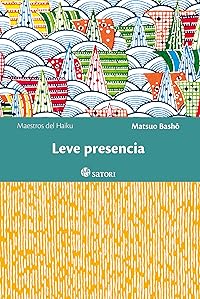Grass on the Wayside
(By Natsume Sōseki)

| Size | 24 MB (24,083 KB) |
|---|---|
| Format | |
| Downloaded | 626 times |
| Last checked | 11 Hour ago! |
| Author | Natsume Sōseki |
It was a long-established custom in Japan at the time for parents to arrange for the adoption of one of their children by a relative, friend or acquaintance. Because such adoptions were strictly formal and upheld by the law, they had come to serve the practical needs of many people in a variety of circumstances, and they were considered a perfectly respectable social institution. Natsume himself was a foster child in such an adoption between the ages of two and nine, when he returned to live with his birth parents. The plot of Grass on the Wayside revolves around Natsume’s adoption and his subsequent relationship with his stepparents several decades after the adoption was terminated.
In the novel, Natsume portrays himself as the protagonist, Kenzoh, who is a mediocre university professor living in Tokyo with his wife and children. Although Kenzoh struggles to support his family on his meager salary, he is better off financially than anyone else in his extended family. Fairly cosmopolitan at this point in his life, he feels tied down by his job and his family, and he longs for independence and personal fulfillment. But even as he tries to pull free, a parade of family members approaches him from all sides to bind his conscience to the traditional Confucian concept of family duty, mercilessly using him for money in greedy, calculating and often coldhearted ways. As he struggles to find a way out, he explores his consciousness from his earliest childhood memories through premonitions of an uncertain future. He examines his childhood and emotionally distant parents and foster parents, his neurotic wife and their failing marriage, his financially struggling yet unambitious brother, and his asthmatic sister and her callous, unfaithful husband. At last, he is torn between his desire to break away and his sense of duty to his family, who he no longer loves but to whom he owes a debt of gratitude.
If Natsume’s view of life is decidedly on the dark side, his portrayal of it is entertaining and amusing, at times, even comical. And throughout he manages to convey a sense of faith and hope that is greater than the economic hardship and hopelessness that afflicted so many Japanese at the turn of the twentieth century. His natural storytelling ability, richly layered characterization, poignant reflections on human nature, and sheer relentlessness make Grass on the Wayside a literary masterpiece.
The story has an old-fashioned charm, written in the days before electricity, telephones and cars, yet it is timeless, its characters as fresh and vivid as if they were alive today. Subtle and attentive to detail, it offers a snapshot of everyday life in Japan at the end of the Meiji era.
Angel Ray Reilly”















